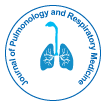当社グループは 3,000 以上の世界的なカンファレンスシリーズ 米国、ヨーロッパ、世界中で毎年イベントが開催されます。 1,000 のより科学的な学会からの支援を受けたアジア および 700 以上の オープン アクセスを発行ジャーナルには 50,000 人以上の著名人が掲載されており、科学者が編集委員として名高い
。オープンアクセスジャーナルはより多くの読者と引用を獲得
700 ジャーナル と 15,000,000 人の読者 各ジャーナルは 25,000 人以上の読者を獲得
抽象的な
The Importance of Vaccines for Respiratory Health
Anang Endaryanto
Vaccines have been used for centuries to prevent infectious diseases and improve public health. One of the most significant benefits of vaccines is the prevention of respiratory diseases, which can cause serious illness and even death. In this article, we will discuss the importance of vaccines for respiratory health and how they work to protect us from respiratory illnesses. Respiratory illnesses are infections that affect the respiratory system, which includes the lungs, airways, and other structures involved in breathing. Respiratory diseases can be caused by bacteria, viruses, or other pathogens and can range from mild illnesses like the common cold to severe illnesses like pneumonia.
Vaccines work by stimulating the body's immune system to recognize and fight specific pathogens. When a vaccine is administered, it contains a small amount of a weakened or inactive form of the pathogen. The body's immune system then recognizes the pathogen and produces an immune response, which includes the production of antibodies that can recognize and fight the pathogen. The immune response generated by vaccines is similar to the response that occurs when the body is naturally exposed to a pathogen. However, vaccines are much safer than natural exposure because they contain only a small amount of the pathogen and cannot cause serious illness. There are several vaccines available that protect against respiratory illnesses. Some of the most common vaccines include the influenza vaccine, the pneumococcal vaccine, and the pertussis vaccine.

 English
English  Spanish
Spanish  Chinese
Chinese  Russian
Russian  German
German  French
French  Portuguese
Portuguese  Hindi
Hindi